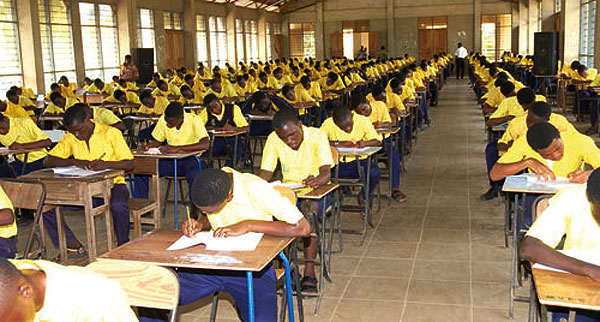Examination malpractice means any dishonest or unethical behavior during an examination that violates the rules and undermines the integrity of the assessment process. It includes actions like cheating, plagiarism, impersonation, smuggling unauthorized materials, colluding with others, or bribing examiners to gain an unfair advantage.
Over the years Examination malpractice has grown from an action whispered in private to a full grown enterprise generating income for those who professionally indulge in it under various guise.
A careful look at the Nigerian Educational system, from Nursery school pupils are are encouraged to engage in one form of examination malpractice or the other through the inactions of their parents and teachers who intentionally refuse to question the source of the grades their wards come home with even when it is glaring that these same children can not replicate the magic that earned them such grades at home when those magicians in school are away from the scene.
A walk to Secondary Common Entrance centers, Parents and teachers throng to these centers looking for favours. The pupils see examination as a do or die affair hence employ different tactics even in the examination halls to ensure that they succeed which defeats the purpose of examinations.
Gone are the days when illicit practices like these can lead to penalties like disqualification, suspension, or legal consequences, depending on the institution or jurisdiction.
What we have now is an abused process where even those who are meant to uphold the sanctity of these examination are the ones dishing out methods to violate the integrity of the examinations.
There has been slow implementation of the Examination Malpractices Act, Cap E15, Laws of the Federation of Nigeria, 2004, which lists Cheating at Examinations, Impersonation of candidates, Collusion and Leakage of examination questions, Tampering with Scores amongst other offenses as punishable under the laws of the Federation.
In a bid to reduce the level of cheating in secondary and tertiary examinations in the country, policy makers introduced computer based test, CBT, but this step has not brought down or eradicated examination malpractice in the country because of the institutional corruption amongst leaders of government institutions which facilitates these sharp practices in the country.
Nigerian Educational System is rich with syllables but if the multi headed hydra called examination malpractice is not tackled accordingly then the intelligence and beauty embedded in our educational system will not be appreciated by other nations.
Those who cheated to make A’s in their O’level examination will always think that every other person walked that same path.
Those who through inducement got better grades in their tertiary education will not be able to defend such certificates when push comes to shove.
Our Nation might end producing more intellectuals on paper but in the gathering of great minds, we may one day find out that we have no one there because we have not tackled issues of examination malpractice.
Nigerian laws should be implemented against those who seek to undermine the integrity of our examination bodies from primary, secondary and tertiary institutions.
Anti corruption bodies should beam more search lights on examination bodies to curb the high level of leakages of essential information that jeopardize the integrity of these examinations.
Special Educational Courts should be established in different zones in the country to try cases of examination malpractice, plagiarism and other forms illegality in the educational sector.
We must strive to preserve the sanctity of our educational system by ensuring that our examination bodies are protected from all forms internal and external attacks.
Read also: WAEC candidates in Delta sit for paper in darkness



